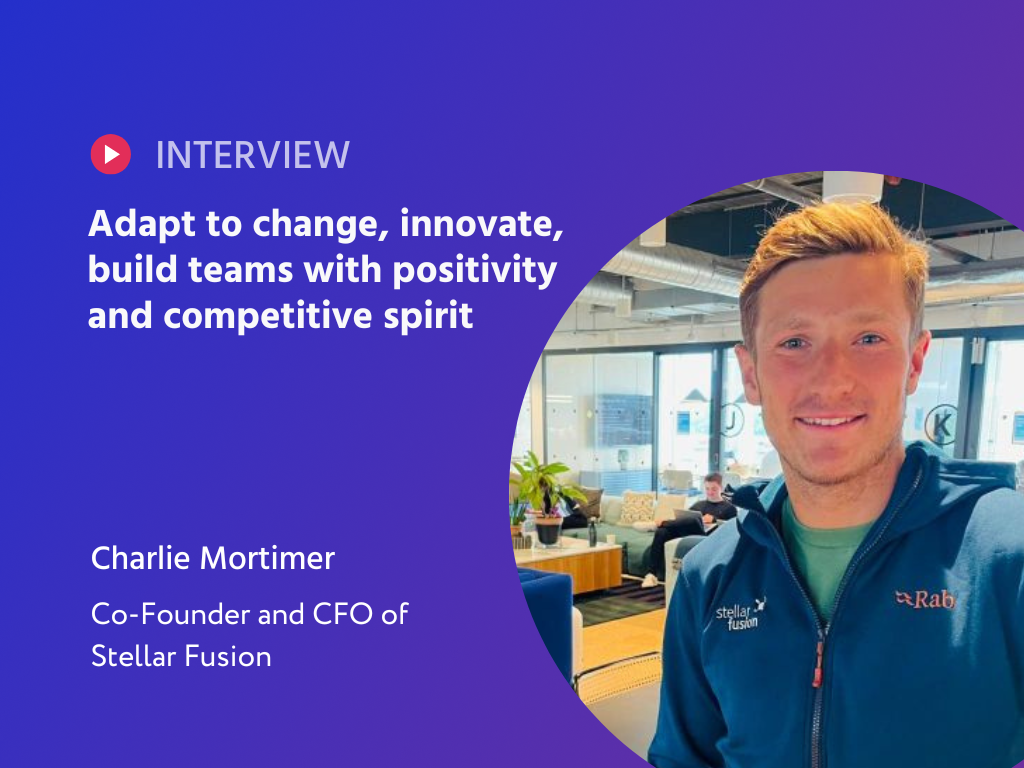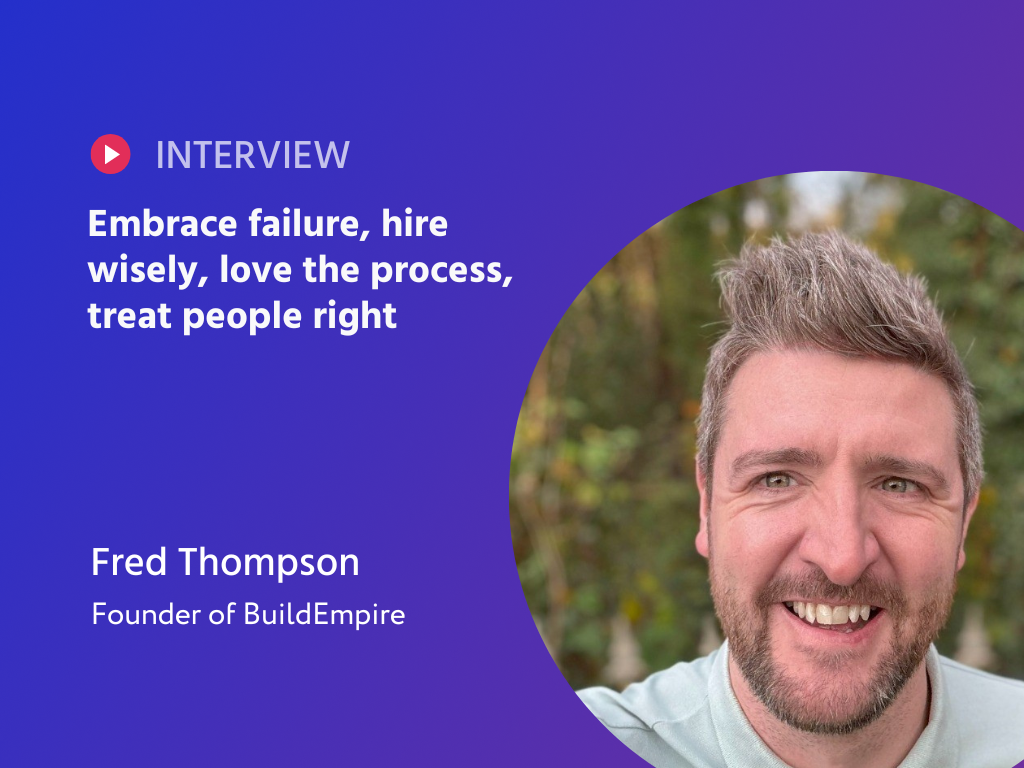In today's edition of "Bright Founders Talk," presented by Temy — software development company —we're excited to bring you an exclusive interview with Zack Dugow, Founder and CEO of Insticator.
As he delves into the intricacies of startup life and corporate evolution, he provides keen insights into the emotional challenges of being at the helm.
Through candid conversations about personal journeys and business philosophies, we uncover what truly drives visionaries like Dugow. Join us as we navigate the ebb and flow of entrepreneurial life, all while unveiling a few lesser-known tidbits about our esteemed guest. Whether you're a budding founder or just curious about the minds behind the brands, this is one conversation you won't want to miss.
Zack Dugow: CEO Roller-Coasters, and When Startups Grow Up
The ups and downs of founder life come with its unique challenges. And while most might get their advice from fellow entrepreneurs or seasoned investors, Zack's advice is a little more… four-legged. He advocates the emotional stability a pet, especially a dog, can bring to the unpredictable world of startups. "Having a companion, like a dog, can be really additive in giving perspective when things get tough," Zack reveals, emphasizing the grounding presence a furry friend can offer amidst corporate chaos.
You really don't understand the gravity [of being a CEO] until you've been in those situations where things can swing massively
But it's not all about canine companions. When asked about the evolution of a startup, Zack dives into an analytical take, pondering the nebulous transition from a young, budding company to a mature enterprise. "If you can predict more effectively how things are going to go for your business, maybe you're starting to enter a mature business phase," he postulates. However, maintaining the innovative spirit of a startup is the secret sauce to long-term success, as evidenced by tech giants like Amazon. Always evolving, always innovating – that's the Zack Dugow way.
The Ever-Evolving Startup Mentality: Zack's Vision for Insticator
Zack leaned back, a knowing smile on his face. "It's quite a healthy thing, I think, to think of yourself as a startup," he mused. To many, the term "startup" conjures up images of scrappy teams in basements, fueled by dreams and caffeine. But Zack, the visionary behind the Instigator brand, argues that the startup mindset is more about agility, innovation, and expecting the unexpected. "I always want our team and the people in our business to be thinking: Who's next? Where do we need to be prepared? How do we keep innovating?"
Yet Insticator is not Zack's only business hat. His journey with names brought about a blend of 'instinct' and 'indicator', encapsulating the brand's essence. From a B2C platform predicting TV show outcomes to mastering audience engagement through trivia, polling, and AI-driven comment moderation, Zack's ability to pivot is evident. "Massively evolved" is how he described Instigator's journey over the past decade. Their evolution hasn't just been about growth; it's been about understanding the market, being adaptable, and acquiring companies that align with their goals. "Listening to the market, being creative, and being acquisitive" became their north stars.
Yet, through all the twists and turns, one thing remained constant: Zack's belief in embracing the startup spirit. "If you stop thinking of yourself as a startup, that's when the big blow you're not going to see coming hits you," he warned, leaving a nugget of wisdom for other entrepreneurs. Zack's story serves as a testament to what businesses can achieve when they remain nimble and true to their core beliefs, no matter how big they become.
It's quite a healthy thing, I think, to think of yourself as a startup
From 'Mad Men' to Modern Tech: How Zack's Vision Merged Community and Digital Evolution
The evolution of Zack's company, Insticator, traces its roots back to a rather unusual but relatable inspiration - the iconic TV show, Mad Men. "The initial idea came to me while I was engrossed in Don Draper's world," Zack shares, recounting bets with fans about character arcs and story developments. What struck him was not just the show, but the "level of connection and community" it fostered among its viewers. This wasn't limited to television, as Zack points out, drawing parallels with the passionate fanbase of sports teams. It's this "exciting social connectivity" that he sought to encapsulate and amplify digitally. Today, Insticator is more than a digital echo of TV fandom, branching out to diverse topics like health foods, news, and, of course, sports.
Peeking behind the curtain, the technical machinery powering Insticator is nothing short of impressive. With multiple codebases, from Java for the backend to React for the frontend, their technical architecture is an evolving amalgamation of cutting-edge tech. "We've had to move and consolidate a lot, shifting from Google Cloud Compute to AWS, integrating acquired technologies, and constantly leveling up," Zack explains, a chuckle breaking his professional facade as he recounts the challenges of keeping track amidst the rapid pace of innovation. But there's a universal truth Zack holds close: "If you think you're safe tech-wise, you're already behind."
One thing is clear - relationships, especially those built over time, are the backbone of Zack's venture. Reflecting on the decade-long association with his CTO, he stresses the significance of "strong business chemistry." It's not about the glittering resumes or extensive expertise; it's about understanding and growing together. "Where businesses really thrive is if there's direct, honest communication," he states, emphasizing the need for ego-less collaboration. This sentiment echoes throughout his team, some of whom have been with him for over half a decade, a testament to the culture of growth and unity Zack fosters. And as for the team's size? "We're hovering between 80 and 90 globally," he says with evident pride.
Business success can be really amazing when you get down to the root of opportunities and challenges faster. Speed is essential
Unlocking Excellence: Zack on Keeping the A-Players and Letting Go of the Rest
Zack paints an insightful picture of what a successful team should look like. While the temptation for startups is to expand and onboard many members quickly, especially when resource-constrained, the counterintuitive approach might be more effective. Zack points out the need for quality over quantity, emphasizing the importance of retaining a smaller group of top-tier talents than a larger group of mediocre ones. "Less is more in terms of people," he says, hinting at the transformative power of a few dedicated individuals.
The people in your organization that have the greatest growth potential are your A players, not your C players
Where many founders might fear turnover, Zack's take is refreshingly optimistic. He perceives turnover not as a loss, but an opportunity, a learning experience to perfect the hiring process. Rather than focusing solely on retention rates, he advocates for understanding who you are retaining. Keeping the A-players is critical; if they're staying, you're on the right track. On the flip side, if underperformers are leaving, it makes room for potential high-performers.
Zack's holistic approach doesn't stop at identifying the right fit. He is deeply attuned to the signals that indicate whether an employee will step up or stay static. A pivotal piece of advice he shares is the importance of clear, consistent feedback. If, after months of clear communication and feedback, there's no progress, then it's time to reassess. After all, the real growth potential lies in elevating those A-players, not hoping to convert the Cs into Bs.





